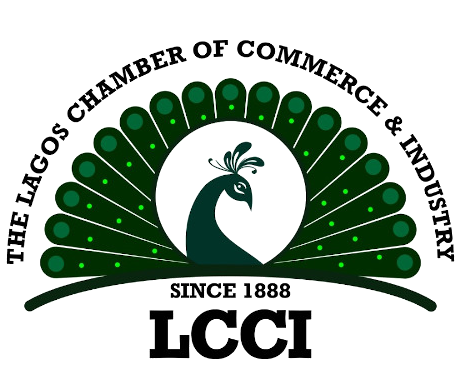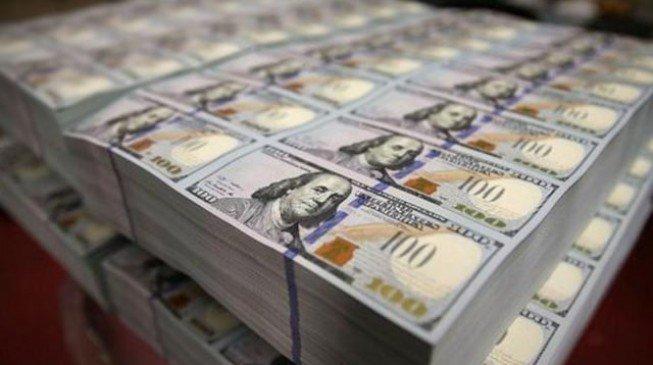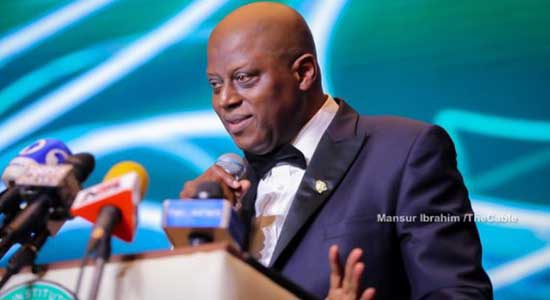Money market
SEC to sanction stakeholders over N180bn unclaimed dividends
The Securities and Exchange Commission has urged all stakeholders in the capital market to continue to work towards reducing the volume of unclaimed dividends and reiterated that stiff penalties will be meted out to any stakeholder whose action appears to frustrate the efforts of the Commission on this objective.
This was disclosed by the Director-General, Alhaji Lamido Yuguda, at a press briefing for the second Capital Market Committee (CMC) Meeting held virtually.
Yuguda reiterated the Commission’s commitment to continue to strive and fulfil its mandate of protecting investors and creating an enabling environment for market operations.
As of December 31, 2021, unclaimed dividends have increased to N180 billion from N168 billion it recorded in 2020, according to Yuguda.
The Commission noted that in spite of its efforts in the implementation of the Electronic Dividend Mandate Management System (eDMMS), investors have continued to lament the delayed payments of e-dividend and the cumbersome manual process among other shortcomings.
“A large number of investors are also still unaware of the eDMMS and have not mandated their accounts.
“The Commission will however continue to create awareness in this regard. Capital market operators must also do more to demonstrate, through their activities, an efficient capital market that prioritizes the interests of investors.
“As part of our efforts to stem the tide of fraudulent activities of unregistered investment crowdfunding platforms, the Commission warned the operators of such platforms that they stand the risk of being prosecuted. The Commission has an existing regulatory framework that permits private companies with the required structure and mechanism to raise capital from the public through crowdfunding. All crowdfunding platforms must register with the Commission,”Yuguda said.
Yuguda noted that on Monday, June 27, the Capital Market Master Plan Implementation Council (CAMMIC) submitted the revised Nigerian Capital Market Master Plan (2021 -2025) to the Honourable Minister of Finance, Budget and National Planning, adding that the Commission will be launching the revised Master Plan at the next CMC meeting in November 2022.
“The Commission has obtained donor funding towards acquiring and deploying a securities market surveillance system. The deployment of the surveillance solution will improve the Commission’s regulatory and supervisory capabilities over securities trading activities and help modernise the local capital markets, ensure market integrity and transparency across all trading platforms, and boost investor confidence. All of these will bode well for the capital market and support its growth.”
Following the conclusion of the Commodity Standards Stakeholders’ Sensitization Workshops held in Lagos and Kano in November 2021, the SEC continues to engage the Standards Organisation of Nigeria (SON) deepen the Commodities Ecosystem. SON is currently finalizing its review of commodities standards in line with comments received from stakeholders at the two workshops.
On the back of the commencement of tax on corporate bonds by the Federal Government, Yuguda urged the government to reconsider and give investors tax exemption period for corporate bonds and short-term government securities.
“We believe that these tax exemptions should return to the capital market. Stakeholders also agree with this. The Commission continues its engagement with the Honourable Minister of Finance, Budget and National Planning on the request for tax exemption for corporate bonds,” he said.
Concerns have grown after the Federal Government of Nigeria decided to securitize unclaimed dividends and inactive account balances in the country for up to six (6) years.
The management of unclaimed dividends and dormant account balances has been included in the recently assented 2020 Finance Bill, along with many other provisions intended by the Federal Government of Nigeria to mitigate Nigeria’s fiscal frailties and economic crunch caused by the emergence of COVID-19.The funds realised will be placed in a trust fund, managed by the Debt Management Office (DMO). The DMO’s responsibility also includes payment of claims for such dividends and the accompanying compensation for accrued interest.
Money market
LCCI advocates discipline, export to sustain Naira appreciation


LCCI advocates discipline, export to sustain Naira appreciationThe Lagos Chamber of Commerce and Industry (LCCI) has emphasised the importance of maintaining discipline in the foreign exchange market to sustain the steady appreciation of the Naira.
The President and Chairman of the Council of LCCI, Mr Gabriel Idahosa, made the call in an interview with newsmen on Wednesday in Lagos.
Idahosa praised the efforts of the Central Bank of Nigeria in imposing discipline, attributing the recent Naira appreciation to curbing speculative activities.
“On the monetary side, the CBN is doing it. The primary efforts should continue to impose discipline in the foreign currency market.
“The abuses in the foreign currency market were prevalent and most of the fall in the value of the Naira in the last six months is not because there was any sudden calamity in the Nigerian economy.
“It was primarily because of very reckless speculations, that people were just speculating in the dollar, they had nothing to export, nothing to import, they were just buying the dollar for speculative reasons.
“And once the Central Bank started to impose discipline in the foreign currency market, we saw the value of the Naira rising very quickly by stopping speculation,” he said.
According to him, the strategies of the Central Bank, now, are designed to achieve a sustained discipline in the foreign currency market.
Idahosa highlighted the need to continue reducing the number of Bureau de Change operators, stressing that many operated without contributing to international trade.
He applauded the Central Bank’s move to enforce documentation and identification of buyers and sellers at BDCs, aiming to deter reckless speculation and curb illicit financial flows.
On the fiscal side, Idahosa urged President Bola Tinubu to prioritise a nationwide export drive, citing it as the key to bolstering the Naira and providing essential foreign exchange.
He emphasised the importance of fostering a culture of export among Nigerians across all scales of enterprise to reduce reliance on imports and strengthen the country’s economic resilience.
Money market
Foreign reserves decline to $32.29bn


The foreign reserve has depleted to $32.29 billion, which is a six-year low in the Central Bank’s course to save the naira.
This is the lowest level the reserves have been since September 25, 2017, when it was $32.28 billion.
The country’s foreign reserves declined by 6.2 percent, losing $2.6 billion since March 18, when the naira started its rebound from record-low levels against the dollar to $32.29 billion as of Monday, based on the latest available data from the CBN.
At the beginning of the month, the reserve was at $33.57 billion, then further dipped to $32.6 billion by April 12.
This comes as the CBN has attempted to save the naira through various interventions such as raising interest rates to 24.75 percent and managing foreign exchange trades.
It stepped up its intervention in the FX market with sales at both the official market and to BDC operators who sell dollars on the streets.
The apex bank, which sells $10,000 to each BDC every week, mandated them to only sell at a spread of 1.5 percent, which comes to N1,117 per US dollar.
The rate sold by the BDCs has set a defacto floor for the naira in the black market since the apex bank resumed sales to them in February.
Also, last month the CBN said it had cleared a backlog of $7 billion since the beginning of the year. That was built over the years as the central bank pegged its currency against the dollar, leading to a scarcity of foreign currency that deterred foreign portfolio investment. However, it’s unclear how much dollar debt the CBN retains on its books.
Akpan Ekpo, a professor of economics and public policy, said the CBN’s managed float system in which it is trying to ensure supply and curtail demand is not sustainable in the long term.
He said the CBN needs to be careful with how it depletes the foreign reserves as its main source is oil revenue.
“We need to manufacture non-oil goods and services, export them, and get foreign exchange and not depend on oil income,” he said.
Money market
CBN expresses commitment to harnessing digital technologies


The Central Bank of Nigeria says it is committed to harnessing the power of digital technologies to enhance financial inclusion.
CBN Governor, Mr Yemi Cardoso said this on Tuesday in Abuja, during a strategic institutions tour by participants of Senior Executive Course 46 of the National Institute of Policy and Strategic Studies (NIPSS).
Cardoso, who was represented by Dr Bala Bello, Deputy Governor, Corporate Services, said that digital technologies would also boost productivity and create an enabling environment for innovation and entrepreneurship to thrive.
According to him, the apex bank has already deployed robust digital technologies in driving most of its processes towards achieving optimal performance.
He said that NIPSS, as a foremost national policy think-tank, had made invaluable contributions to the socio-political and macroeconomic development of Nigeria.
“We are, therefore, not surprised at the apt and relevant choice of your research theme.
“The CBN and NIPSS have had a long-standing and robust working relationship since the establishment of the institute. This has culminated into positive mutual benefits for the two institutions.
“The CBN, on the one hand, has provided infrastructural support to the institute through construction of an auditorium and a hostel, in addition to the provision of technical support.
“On the other hand, NIPSS has supported the technical capacity of the CBN through the training of some personnel both at senior executive course level and intermediate course cadre,” he said.
The Director-General of NIPSS, Prof. Ayo Omotayo, said that the study visiting would be representing the institute in getting information from operators of the apex bank on the relevance of digital technology to developing jobs for Nigerian youths.
According to Omotayo, a lot of progress has been made globally in using digital systems to run the economy.
“The more of our activities that we can put in digital format, the more we get the opportunity of providing employment access to a whole lot of the 120 million active Nigerians.
“We at NIPSS always knock at the frontiers of knowledge, checking what is going to happen in the immediate future.
“We are working towards a system where we believe that almost every service can be delivered digitally,” he said.
The Acting Director, Monetary Policy Department of the CBN, Dr Lafi Bala Keffi, commended the NIPSS study group for its interest in the apex bank.
She urged the participants to explore the time-tested culture of NIPSS, which is to diagnose national, profer practical solutions and recommend ways of making such solutions realisable.
-
Finance3 months ago
Court orders Sen. Victor Umeh to repay N136m bank debt to AMCON
-



 Abuja Update2 months ago
Abuja Update2 months agoUNDP, FG partnership needed to achieve inclusion, equity- Minister
-
Abuja Update4 weeks ago
Banks drive stock market performance with N147bn gain
-



 Infotech3 weeks ago
Infotech3 weeks agoWorld Backup Day: NITDA urges Nigerians to ensure backup of data
-
capital market2 years ago
Rt.briscoe, FBNH, Others halts negative performance of stock market
-



 Health2 weeks ago
Health2 weeks agoImmunisation: FG, GAVI seek synergy with Sokoto Govt.
-
Infotech1 week ago
Forex for Beginners: Unveiling the currency exchange and how to trade it
-
Submission Guidelines4 months ago
CALL FOR SUBMISSIONS: POETRY COLUMN-NND








